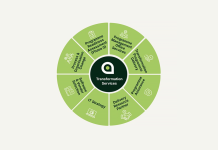Jason Fahy, Chief Executive Officer at Placecube, explains how the public sector is using its open-source, low-code, Digital Experience Platform, Digital Place, to accelerate its digital transformation
In an era marked by continued technological advancements, the public sector stands on the cusp of a transformative journey propelled by digital innovation. Embracing digital transformation is no longer optional; it’s imperative for governments worldwide seeking efficient, transparent, and citizen-centric service delivery. But digital transformation isn’t just about adopting new technologies; it requires a shift in mindset, operational delivery, and governance if the substantial opportunities that exist across the public sector are to be fully realised.
Typically, our public sector clients and their partners want well-designed, accessible services for the citizens and businesses that they serve and for the people they employ. They wish to exploit digital capabilities to meet users’ needs and reduce operating costs.
However, many continue to be forced into using outdated technology based on equally outdated commercial offers. Typically, this is because the cost of new platforms designed for big business is either expensive to buy or run in terms of integration and support costs. This has left these organisations relying on mixing various individual point solutions, such as CMS, Forms, CRM, and Case Management applications, and paying for the integration between them. An approach that, too often, proves costly and frustrating, as it does not deliver the seamless experiences that users expect.
Placecube believes that to achieve meaningful results for local users; organisations need to start with technology that makes it easier to deliver complex transactions in an integrated and unified way.
Rewriting the narrative
Placecube is rewriting this narrative with an open-source platform, Digital Place. Digital Place is based on a fully featured digital experience platform that provides all these point solutions and more in one integrated platform straight out of the box and typically operates at a much lower total cost of ownership than the alternatives.
Digital Place allows organisations to create their tailored, open and connected platform. The transformation journey is accelerated through the reuse of prebuilt digital services. These reusable components are referred to as ‘cubes.’
As soon as a new cube is developed with one client, it is made available to all subscribers within their annual subscription. This ensures Digital Place subscribers never pay twice for the same development.
Clients have full control over the local development of solutions that meet their requirements using Digital Place tools such as content management, form and workflow builders, case management, and CRM. New features are built using low code tools, or through full code where more significant developments are required.
Continuous collaboration provides continuous return on investment
Adopting Digital Place enables the public sector to maintain a modern digital presence, making it easier for their customers to interact with them. The collaborative commercial approach provides continuous return on investment and modernisation, as new work with one client is immediately shared with others. Examples include:
- Reuse of Freedom of Information and complaints process types;
- Enhancements to case management, including new reporting features;
- Design and development of a Customer Contact Management (aka CRM) application;
- Enhanced security features to support agency access to the extranet feature.
- Four councils that collaborated on a low-code waste services project that produced seven new digital services and integration connectors for several popular waste management systems;
- The design and build of a traded services platform and business account, including e-commerce; and
- A low code development and design project to replace housing and tenancy management processes.
Data-driven decision making
The wealth of data generated in the digital landscape becomes a cornerstone for informed decision- making. Harnessing analytics and machine learning enables governments to derive actionable insights from vast datasets. This empowers policymakers to make evidence-based decisions, optimise resource allocation, and better understand citizen needs, fostering a proactive approach to governance.
Placecube has begun exploring how tools, such as LG Inform and LG Inform Plus, can be used to better inform decision-making for its Digital Place subscribers. Placecube’s subsidiary business, Porism, enjoys a decade-long relationship with the Local Government Association, where the partnership has helped organisations shape, run and improve their business using data.
Transparency and accountability
Placecube believes it essential that digital transformation comes together with improved transparency and accountability, both within the public sector and on the supply side.
Transformation in the public sector isn’t just about embracing technology; it’s about fostering innovation, enhancing efficiency, and placing users at the centre of governance. The benefits are manifold—streamlined services, cost savings, informed decision-making, transparency, and inclusive engagement—all contributing to a more responsive, efficient, and accountable government.
New, more open relationships that are sustained by continued value rather than it being made too difficult to do something new. Simple and published terms and pricing that apply to all, not just those who struggle to negotiate better terms. These are the ingredients of trusted, sustainable relationships necessary to support change.
Embracing digital transformation is not just an option; it’s an opportunity for governments to lead by example and shape a future that is accessible and user-centric. Placecube believes it has a role to play – helping you to create your Digital Place.

This work is licensed under Creative Commons Attribution-NonCommercial-NoDerivatives 4.0 International.











